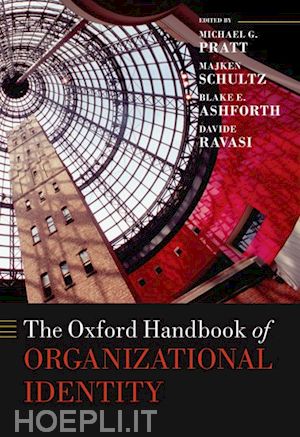Michael G. Pratt is the O'Connor Family Professor in the Carroll School of Management at Boston College. He earned his Ph.D. from the University of Michigan. His research is problem-centered and process-oriented, and consequently he tends to engage in cross-level research. His interests include how individuals connect with the work that they do, as well as to the organizations, professions, occupations, and other collectives in which they find themselves. Theoretically, his research draws heavily from theories of identity and identification, ambivalence, meaning, intuition, and culture (e.g., artifacts). Mike is currently a fellow of the Academy of Management and an associate editor for the Administrative Science Quarterly. Majken Schultz is Professor of Organization and Management since 1996 at Copenhagen Business School. Her research focuses on the interrelations between organizational culture and organizational identity during transformational change. Currently she is interested in how organizations reconstruct their identity in time based on longitudinal studies of LEGO and Carlsberg Group. She has published more than 50 articles in international peer reviewed journals on these topics and edited/co-authored multiple books, including several with Oxford University Press. She is International Research Fellow at the Centre for Corporate Reputation at Oxford University, member of the Royal Danish Academy of Sciences and Letters and serves on several company boards. Blake Ashforth is the Horace Steele Arizona Heritage Chair in the W. P. Carey School of Business, Arizona State University. He received his Ph.D. from the University of Toronto. His research concerns the ongoing dance between individuals and organizations, including identity and identification, socialization and newcomer work adjustment, and the links among individual-, group-, and organization-level phenomena. Recent research has focused on dirty work, ambivalence, and respect. Blake is a fellow of the Academy of Management. Davide Ravasi is Professor of Strategic and Entrepreneurial Management at the Cass Business School, City University London. His research examines interrelations between organizational identity, culture, and strategy in times of change, and how discursive and material artifacts influence sensemaking. He is interested more generally in cultural processes influencing how new objects and new practices come to be, and whether and how they are adopted by individuals and organizations. His works have appeared on the Academy of Management Journal, Organization Science, Journal of Management Studies, Strategic Organization, and other journals.











